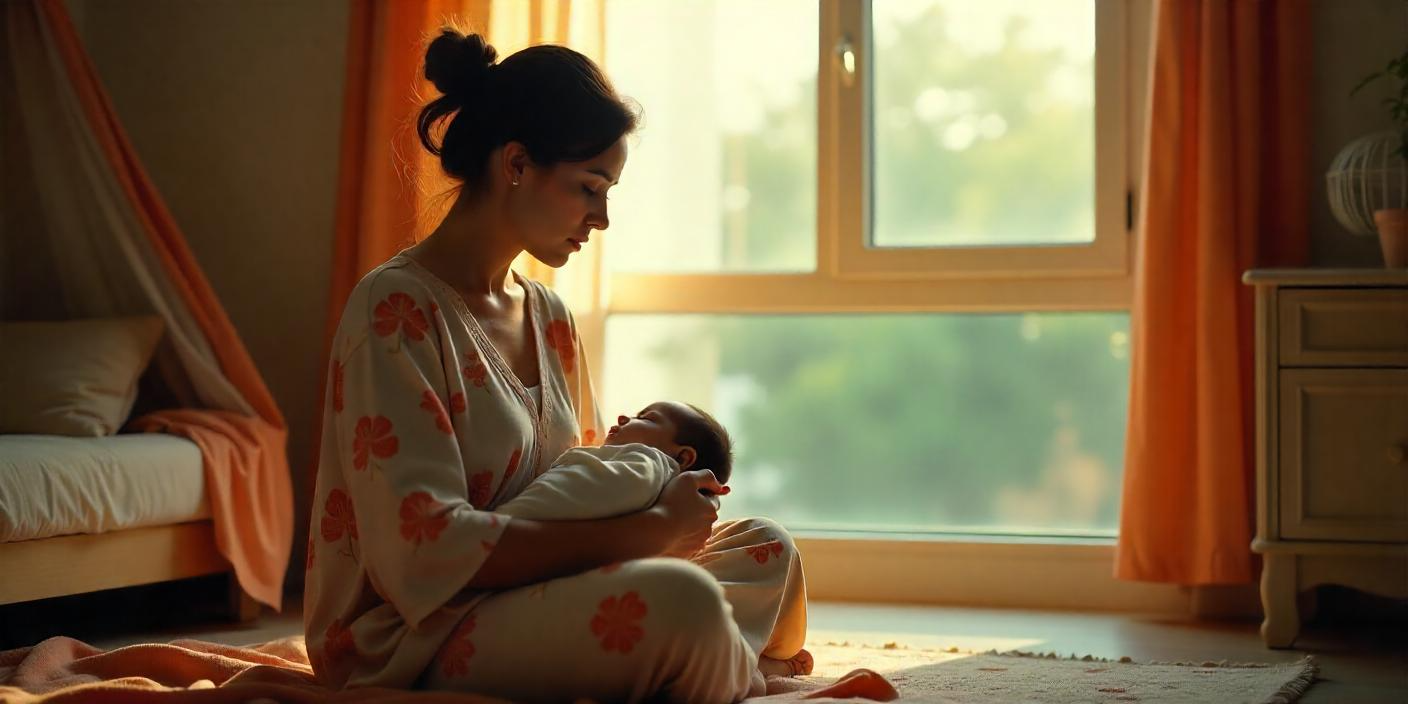
Emotional Trauma Recovery: How to Heal and Regain Your Life
April 13, 2025
How to Set Boundaries and Stick to Them: A Practical Guide to Saying No
April 13, 2025Motherhood Is Not What I Expected: The Silent Struggles No One Talks About !

When we think of motherhood, we’re often met with soft pastel images—smiling babies, glowing mothers, and the promise of unconditional love. But for many women, the reality looks very different. If you’ve ever thought, “Motherhood is not what I expected,” you’re not alone—and you’re not broken.
The truth is, the emotional weight of becoming a mother is rarely discussed in full. Behind the Instagram-worthy photos and adorable baby clothes lies a complex reality: one filled with emotional turbulence, identity shifts, unmet expectations, and sometimes, an overwhelming sense of isolation.
In this article, we’ll dive into the real side of motherhood—the one most people are too afraid or ashamed to talk about. Whether you’re a new mom, expecting, or reflecting on your early parenting journey, this honest perspective can help you feel seen, validated, and supported.
The Myth of Instant Bonding.
From the moment we announce a pregnancy, we’re surrounded by language that assumes immediate joy: You must be so excited! You’re going to love every minute! That baby will complete you!
But what if you don’t feel that instant connection after giving birth? What if your first thoughts aren’t joy or awe—but confusion, numbness, or even regret?
Many new mothers feel deeply unsettled when that magical bond doesn’t appear right away. This emotional gap between expectation and reality is one of the first cracks in the illusion of perfect motherhood.
And yet, it’s completely normal.
Emotional bonding can take time. You’re recovering from physical trauma, sleep deprivation, and hormonal shifts. Your body has changed. Your identity has shifted. It’s okay to feel distant, overwhelmed, or unsure. The most important thing is to acknowledge those feelings—not suppress them.
The Emotional Rollercoaster No One Warns You About
Most women are prepared for the physical demands of childbirth. But what about the psychological ones?
Motherhood can trigger a wave of emotions that range from profound love to complete disconnection. You might feel:
- Guilt for not loving it the way you thought you would
- Anger at losing your independence or time
- Grief for your pre-motherhood self
- Shame for having these feelings at all
These are all valid emotions. But because our culture glorifies motherhood as a woman’s “natural role,” admitting these feelings can make mothers feel like failures. The result? Silence. Isolation. And in many cases, untreated postpartum depression.
“I Don’t Feel Like Myself Anymore”
One of the most common phrases new mothers whisper (but rarely say out loud) is: “I don’t recognize myself.”
You might look in the mirror and see a version of yourself that feels like a stranger. Your body has changed. Your days are consumed by someone else’s needs. Your freedom, spontaneity, and sleep have vanished. It’s like you’ve been dropped into a new life without a map—and everyone expects you to navigate it with a smile.
This loss of identity is a huge reason so many women say “Motherhood is not what I expected.” The shift is seismic, and it’s okay to mourn the person you were—even as you try to embrace the person you’re becoming.
Postpartum Depression: The Hidden Weight
According to the CDC, 1 in 8 women experience symptoms of postpartum depression. But experts believe the actual number is likely much higher due to underreporting.
Symptoms can include:
- Persistent sadness or anxiety
- Feeling numb or emotionally detached from your baby
- Loss of interest in activities you once enjoyed
- Difficulty sleeping—even when the baby is sleeping
- Thoughts of hopelessness or self-harm
If you’re experiencing these symptoms, you are not alone—and you are not a bad mother. Postpartum depression is not a weakness; it’s a real, treatable medical condition. Seeking help from a doctor, therapist, or support group is one of the strongest and most courageous things you can do—for both you and your child.
Redefining What “Being a Good Mom” Looks Like
So often, our expectations of motherhood are shaped by societal pressures, social media, and outdated gender roles. The “good mom” narrative tells us we should:
- Love every second
- Never feel frustrated or bored
- Sacrifice everything without complaint
- Instantly bond with our babies
But real motherhood is messy, unpredictable, and emotionally complicated. A good mother is not someone who never struggles—she’s someone who shows up, even when it’s hard. She’s someone who asks for help when she needs it. She learns, adjusts, and forgives herself along the way.
If You’re Struggling, Here’s What You Can Do
If you’re sitting with the heavy feeling that motherhood is not what I expected, here are some gentle ways to navigate it:
1. Talk About It
Find someone you trust—a partner, friend, therapist, or fellow mom—and speak honestly. Sharing your truth can be incredibly freeing.
2. Stop Comparing
No one’s Instagram feed shows the full story. Behind every curated photo is a messy, complex reality. Your journey is unique, and comparison only steals your peace.
3. Seek Professional Help
If you’re feeling persistently low, detached, or anxious, it’s okay to reach out to a mental health professional. Therapy, support groups, and even medication (if needed) can make a huge difference.
4. Give Yourself Grace
You’re doing something incredibly hard. You’re learning a new role while healing and adjusting. That deserves compassion—not criticism.
5. Redefine Success
Maybe success today means you showered, fed your baby, and took a 10-minute walk. That’s enough. You are enough.
You Are Not Alone !
If you’re navigating the stormy waters of early motherhood, wondering why it doesn’t look or feel the way you imagined—know this:
You are not failing. You are adjusting. You are growing. And you are far from alone.
Motherhood isn’t a one-size-fits-all journey. It doesn’t always start with magic and instant love. Sometimes it starts with fear, sadness, or doubt—and that’s okay.
You are allowed to grieve the gap between expectation and reality. You are allowed to say “Motherhood is not what I expected”—and still be an amazing mother.





